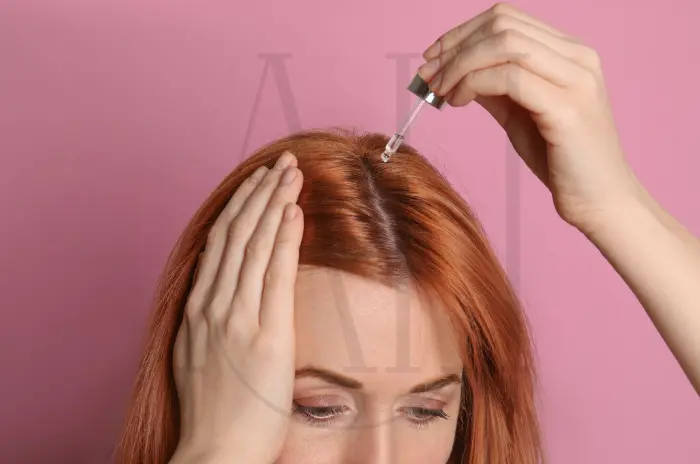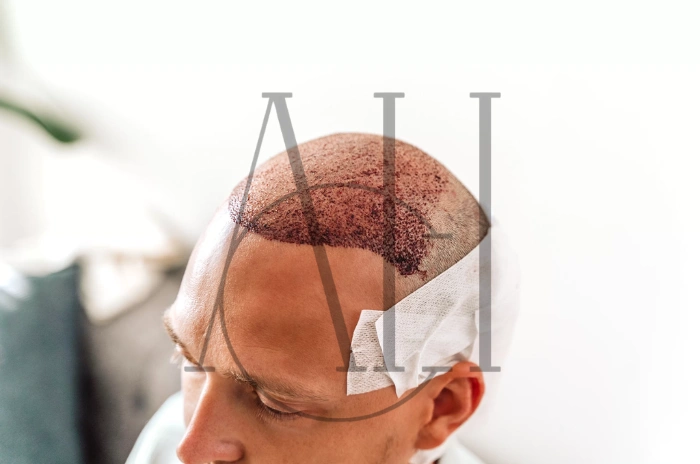Hair gummies have become increasingly popular as a convenient and tasty way to support hair health and growth. These chewable supplements promise to strengthen hair, reduce shedding, and promote faster growth through a blend of vitamins, minerals, and other nutrients. With colorful packaging and fruity flavors, they’ve captured the attention of consumers looking for an easy solution to hair concerns.
However, understanding what hair gummies can and cannot do is crucial for making informed decisions about your hair care routine. While these supplements may provide certain benefits for some individuals, they’re not a magic solution for all types of hair loss or thinning. This comprehensive guide will explore the science behind hair gummies, their potential benefits and limitations, and help you determine whether they might be right for your specific hair goals.
Table of Contents
ToggleWhat Are Hair Gummies and How Do They Work?
Hair gummies are chewable dietary supplements specifically formulated to support hair health and growth. Unlike traditional pills or capsules, these supplements come in gummy form, making them more palatable and easier to incorporate into daily routines. They typically contain a concentrated blend of vitamins, minerals, and other nutrients that are believed to support healthy hair growth from within.
The fundamental principle behind hair gummies is nutritional support. Hair follicles are among the most metabolically active cells in the human body, requiring a steady supply of nutrients to function optimally. When the body lacks essential vitamins and minerals, hair growth can slow down, and existing hair may become weak, brittle, or prone to breakage. Hair gummies aim to fill these nutritional gaps and provide the building blocks necessary for healthy hair production.
Ingredients Commonly Found in Hair Gummies
Hair gummies typically contain a carefully selected combination of nutrients known to support hair health and growth. Understanding these ingredients helps you make informed choices about which products might be most beneficial for your specific needs.
Primary vitamins and minerals:
Biotin (Vitamin B7): Often the star ingredient in hair gummies, biotin plays a crucial role in keratin production, the protein that makes up hair, skin, and nails. Most hair gummies contain biotin levels ranging from 1,000 to 10,000 micrograms, which is significantly higher than the daily recommended intake of 30 micrograms for adults.
Vitamin D: Essential for hair follicle health and cycling, vitamin D deficiency has been linked to various forms of hair loss, including alopecia areata and androgenetic alopecia.
Vitamin C: Acts as an antioxidant that helps protect hair follicles from damage caused by free radicals. It also aids in iron absorption, which is crucial for healthy hair growth.
Vitamin E: Another powerful antioxidant that may help improve blood circulation to the scalp and protect hair from environmental damage.
Iron: Essential for carrying oxygen to hair follicles. Iron deficiency is one of the most common nutritional causes of hair loss, particularly in women.
Zinc: Plays a vital role in hair tissue growth and repair, and helps maintain the oil glands around hair follicles.
Additional beneficial ingredients:
| Ingredient | Function | Typical Dosage |
|---|---|---|
| Folic Acid | Cell division and DNA synthesis | 400-800 mcg |
| Vitamin A | Sebum production regulation | 2,500-5,000 IU |
| Collagen | Hair structure support | 100-500 mg |
| Omega-3 fatty acids | Scalp health and inflammation reduction | 100-300 mg |
| Saw Palmetto | DHT blocking properties | 50-200 mg |
The Role of Biotin and Other Vitamins in Hair Growth
Biotin has gained significant attention in the hair care world due to its direct involvement in keratin synthesis. This B-vitamin acts as a coenzyme in various metabolic processes that are essential for healthy hair growth. When biotin levels are adequate, hair tends to be stronger, more resilient, and less prone to breakage.
However, true biotin deficiency is relatively rare in developed countries, as the vitamin is found in many common foods and is also produced by beneficial bacteria in the gut. Most people consume adequate amounts of biotin through their regular diet, which raises questions about whether additional supplementation is necessary for the average person.
Other essential vitamins for hair health:
B-complex vitamins: Work together to support cellular energy production and protein synthesis. Vitamins B6 and B12 are particularly important for red blood cell formation, which carries oxygen and nutrients to hair follicles.
Vitamin A: Helps produce sebum, the natural oil that keeps hair moisturized and healthy. However, too much vitamin A can actually cause hair loss, making proper dosing crucial.
Vitamin C: Besides its antioxidant properties, vitamin C is essential for collagen production, which provides structure to hair and helps maintain scalp health.
The effectiveness of these vitamins depends largely on an individual’s baseline nutritional status. People with actual deficiencies are more likely to see improvements in hair health when supplementing, while those with adequate nutrition may notice minimal changes.
Are Hair Gummies Different from Regular Multivitamins?
Hair gummies differ from regular multivitamins in several key ways, though there is some overlap in their nutritional content. Understanding these differences can help you decide whether specialized hair gummies are worth the often higher price point.
Key differences:
Targeted formulation: Hair gummies are specifically formulated with higher concentrations of nutrients believed to support hair health, such as biotin, vitamin D, and specific minerals like zinc and iron. Regular multivitamins typically contain these nutrients but in lower amounts that meet general daily requirements.
Ingredient ratios: The ratios of vitamins and minerals in hair gummies are optimized for hair health rather than overall wellness. For example, they may contain much higher levels of biotin and lower levels of other vitamins that aren’t directly related to hair growth.
Additional specialized ingredients: Many hair gummies include ingredients not typically found in standard multivitamins, such as collagen peptides, saw palmetto extract, or marine-derived nutrients.
Sugar content and palatability: Most hair gummies contain 2-4 grams of added sugar per serving to make them palatable, which can be a concern for people monitoring sugar intake or dental health.
Cost comparison: Hair gummies generally cost more per serving than standard multivitamins, sometimes 2-3 times more for similar basic nutrients. This price difference is often attributed to specialized formulations, marketing costs, and the appealing gummy format.
Whether hair gummies offer significant advantages over a high-quality multivitamin plus targeted individual supplements depends on your specific nutritional needs, preferences, and budget considerations.
Do Hair Gummies Really Help with Hair Growth?
The effectiveness of hair gummies is one of the most frequently asked questions among consumers considering these supplements. While the marketing claims can be compelling, it’s important to examine the scientific evidence and understand what realistic expectations should be.
Scientific Evidence Behind Hair Vitamins
The scientific evidence supporting hair gummies specifically is limited, as most research focuses on individual nutrients rather than proprietary blends found in commercial products. However, there is substantial research on how various vitamins and minerals affect hair health and growth.
Research on key ingredients:
Biotin studies: Several small studies have shown that biotin supplementation can improve hair quality in people with biotin deficiency or certain genetic conditions affecting biotin metabolism. However, studies on biotin supplementation in people with normal biotin levels show mixed results, with many showing no significant improvement.
Iron supplementation: Multiple studies have demonstrated that correcting iron deficiency can significantly improve hair growth and reduce hair loss, particularly in women with low ferritin levels. This represents some of the strongest evidence for nutritional supplementation in hair health.
Vitamin D research: Studies have found correlations between vitamin D deficiency and various types of hair loss. Some research suggests that correcting vitamin D deficiency may help improve hair growth, though more research is needed to establish definitive causation.
Zinc studies: Research has shown that zinc deficiency can cause hair loss, and supplementation can help restore growth in deficient individuals. However, excessive zinc intake can actually interfere with other mineral absorption.
What Clinical Studies Say About Hair Gummies
Most clinical studies on hair gummies are sponsored by the companies that manufacture them, which can introduce bias into the results. Independent, peer-reviewed research on specific hair gummy formulations is scarce.
Available study findings:
Several small studies on popular hair gummy brands have reported improvements in:
- Hair thickness and volume after 3-6 months of use
- Reduced hair shedding and breakage
- Improved overall hair appearance and manageability
- Stronger, more resilient hair strands
Study limitations:
- Small sample sizes (typically 20-50 participants)
- Short duration (usually 3-6 months)
- Lack of control groups in some studies
- Subjective measurements rather than objective clinical assessments
- Potential placebo effects from participants’ expectations
What the evidence suggests: The current evidence suggests that hair gummies may provide benefits for individuals with nutritional deficiencies affecting hair health. However, there’s limited evidence that they provide significant benefits for people with adequate nutrition who are experiencing hair loss due to other factors.
Individual Results and Expectations
Individual responses to hair gummies can vary dramatically based on numerous factors, making it important to set realistic expectations and understand what influences outcomes.
Factors affecting results:
Baseline nutritional status: People with actual vitamin or mineral deficiencies are more likely to see improvements when supplementing. Those with adequate nutrition may notice minimal changes.
Type of hair loss: Hair gummies may be more helpful for hair loss related to nutritional deficiencies, stress, or general hair thinning rather than pattern baldness or autoimmune conditions.
Consistency of use: Most benefits require consistent daily use for at least 3-6 months, as hair growth is a slow process with each hair follicle cycling through growth phases.
Overall health and lifestyle: Factors such as stress levels, sleep quality, diet, and underlying health conditions all influence hair growth and may affect supplement effectiveness.
Realistic timeline for results:
- 0-2 months: Minimal visible changes, possible reduction in hair shedding
- 3-4 months: Some improvement in hair texture and strength may become noticeable
- 6+ months: Maximum benefits typically achieved, including potential improvements in thickness and growth rate
It’s important to note that hair gummies are not a cure-all solution and may not address the underlying causes of significant hair loss or pattern baldness.
When Should You Consider Taking Hair Gummies?
Hair gummies may be beneficial in certain situations, but they’re not appropriate for everyone or every type of hair concern. Understanding when these supplements might be helpful can guide your decision-making process.
Hair Loss Conditions That May Benefit from Supplements
Several types of hair loss and hair health issues may respond positively to nutritional supplementation, including the nutrients found in hair gummies.
Nutritional deficiency-related hair loss:
- Iron deficiency anemia: One of the most common causes of hair loss in women, particularly those with heavy menstrual periods or restrictive diets
- Biotin deficiency: Rare but can occur in people with certain genetic conditions or those taking specific medications
- Vitamin D deficiency: Increasingly common and linked to various forms of hair loss
- Zinc deficiency: May occur in people with digestive disorders or restrictive diets
Telogen effluvium: This temporary form of hair loss, often triggered by stress, illness, or major life changes, may benefit from nutritional support during recovery.
General hair thinning: Age-related hair thinning or reduced hair quality may improve with comprehensive nutritional support, especially in individuals with suboptimal diets.
Post-pregnancy hair loss: The hormonal changes and nutritional demands of pregnancy and breastfeeding can affect hair health, and supplements may help support recovery.
Hair damage from styling or environmental factors: While not addressing the root cause, supplements may help strengthen hair that’s been damaged by heat styling, chemical treatments, or environmental stressors.
Situations Where Hair Gummies Might Not Be Effective
It’s equally important to understand when hair gummies are unlikely to provide significant benefits, helping you avoid unrealistic expectations and unnecessary expenses.
Androgenetic alopecia (pattern baldness): This genetic form of hair loss is primarily driven by sensitivity to DHT (dihydrotestosterone) and typically requires medical treatments rather than nutritional supplements.
Alopecia areata: This autoimmune condition causing patchy hair loss requires medical intervention and is unlikely to respond to nutritional supplements alone.
Trichotillomania: Hair loss caused by compulsive hair pulling is a behavioral issue that requires psychological intervention rather than nutritional support.
Medication-induced hair loss: Hair loss caused by chemotherapy, blood thinners, or other medications typically requires medical management and may not respond to supplements.
Hormonal hair loss: Conditions such as PCOS or thyroid disorders require medical treatment of the underlying hormonal imbalance rather than nutritional supplementation.
| Hair Loss Type | Likely to Benefit from Gummies | Primary Treatment Needed |
|---|---|---|
| Nutritional deficiency | Yes | Supplement + dietary changes |
| Telogen effluvium | Possibly | Address underlying cause |
| Pattern baldness | No | Medical treatment |
| Alopecia areata | No | Medical/immunological treatment |
| Hormonal hair loss | Limited | Hormone therapy |

Risks and Side Effects of Hair Gummies
While hair gummies are generally considered safe for most people, they’re not without potential risks and side effects. Understanding these concerns helps ensure safe and appropriate use.
Can You Take Too Many Hair Vitamins?
Vitamin and mineral toxicity is a real concern, particularly with fat-soluble vitamins (A, D, E, K) that can accumulate in the body over time. Many hair gummies contain high doses of certain nutrients, and taking multiple products or combining them with other supplements can lead to excessive intake.
Specific concerns with overdosing:
Biotin overdose: While biotin is water-soluble and generally safe in high doses, excessive intake can interfere with laboratory test results, particularly thyroid function tests and troponin levels used to diagnose heart attacks.
Vitamin A toxicity: Too much vitamin A can actually cause hair loss, dry skin, and more serious health problems. The upper safe limit for adults is 10,000 IU per day.
Iron overload: Excess iron can be toxic and cause digestive issues, organ damage, and interfere with the absorption of other minerals. This is particularly concerning for people with hemochromatosis.
Zinc toxicity: High doses of zinc can cause nausea, vomiting, and interfere with copper absorption, potentially leading to copper deficiency.
Sugar content concerns: Many hair gummies contain significant amounts of added sugars to make them palatable, which can contribute to dental problems and blood sugar fluctuations.
Potential Side Effects to Be Aware Of
Most people tolerate hair gummies well, but some individuals may experience side effects, particularly when starting supplementation or taking high doses.
Common side effects:
- Digestive upset, including nausea or stomach discomfort
- Changes in urine color (particularly with B vitamins)
- Headaches or dizziness in some individuals
- Skin reactions or acne breakouts (particularly with high-dose biotin)
- Interactions with medications or other supplements
Allergic reactions: Some people may be allergic to specific ingredients in hair gummies, including gelatin, artificial colors, or flavoring agents.
Drug interactions: Certain vitamins and minerals can interact with medications, affecting their absorption or effectiveness. For example, vitamin E can increase the risk of bleeding in people taking blood thinners.
Choosing the Best Hair Growth Supplements
With numerous hair gummy products on the market, selecting a high-quality supplement requires careful consideration of several factors beyond marketing claims and attractive packaging.
What to Look for in Quality Hair Gummies
Third-party testing and certifications: Look for products that have been tested by independent laboratories for purity, potency, and contaminants. Certifications from organizations like NSF International or USP provide additional quality assurance.
Transparent labeling: Quality supplements should clearly list all ingredients, their amounts, and their sources. Avoid products with proprietary blends that don’t disclose specific ingredient quantities.
Appropriate dosages: Effective supplements should contain meaningful amounts of key nutrients without exceeding safe upper limits. Be wary of products with extremely high doses that may increase the risk of side effects.
Minimal artificial additives: While some artificial ingredients are necessary for gummy formulations, quality products minimize unnecessary colors, flavors, and preservatives.
Manufacturing standards: Look for products manufactured in FDA-registered facilities that follow Good Manufacturing Practices (GMP).
Realistic claims: Be skeptical of products that promise dramatic results in unrealistically short timeframes or claim to cure serious medical conditions.
Are Hair Gummies a Good Alternative to Other Treatments?
Hair gummies can be a useful part of a comprehensive hair care approach, but they shouldn’t be viewed as a replacement for proven medical treatments when dealing with significant hair loss.
Comparison with other treatments:
vs. Prescription medications: For androgenetic alopecia, FDA-approved medications like minoxidil and finasteride have much stronger clinical evidence than nutritional supplements.
vs. Professional treatments: Procedures like platelet-rich plasma (PRP) therapy or low-level laser therapy may be more effective for certain types of hair loss.
vs. Individual supplements: Taking targeted individual supplements may be more cost-effective and allow for better dose control than combination gummy products.
Best use scenarios for hair gummies:
- As a convenient way to ensure adequate intake of hair-supporting nutrients
- For people with busy lifestyles who struggle to maintain a balanced diet
- As a complement to other treatments rather than a standalone solution
- For individuals who have difficulty swallowing pills or capsules
Natural Hair Growth Tips Beyond Supplements
While hair gummies may provide nutritional support, optimal hair health requires a holistic approach that addresses diet, lifestyle, and hair care practices.
Healthy Diet and Lifestyle for Stronger Hair
Nutritional foundations for hair health:
A balanced diet provides the foundation for healthy hair growth, often making supplementation unnecessary for people with good nutritional status.
Key nutrients and food sources:
- Protein: Hair is primarily made of protein, so adequate intake from sources like lean meats, fish, eggs, legumes, and nuts is essential
- Iron: Found in red meat, spinach, lentils, and fortified cereals
- Omega-3 fatty acids: Available in fatty fish, walnuts, and flaxseeds
- Antioxidants: Berries, leafy greens, and colorful vegetables provide protection against oxidative stress
Lifestyle factors affecting hair health:
Stress management: Chronic stress can disrupt hair growth cycles and contribute to hair loss. Effective stress management techniques include regular exercise, meditation, adequate sleep (7-9 hours per night), and stress-reduction activities.
Hydration: Proper hydration supports overall cellular function, including hair follicle health.
Avoiding harmful practices: Limiting heat styling, harsh chemical treatments, and tight hairstyles that can damage hair and lead to breakage.
When to Consider Professional Hair Loss Solutions
While natural approaches and supplements may help with minor hair concerns, certain situations warrant professional evaluation and treatment.
Signs that professional help may be needed:
- Sudden or rapid hair loss
- Patchy or unusual patterns of hair loss
- Hair loss accompanied by scalp irritation, redness, or scaling
- Significant thinning that affects self-confidence or quality of life
- Family history of pattern baldness with early signs of thinning
Professional treatment options:
- Medical evaluation to identify underlying causes
- Prescription medications for pattern baldness
- Professional treatments like PRP or laser therapy
- Hair transplant procedures for advanced hair loss
An intermediary organization can help connect you with qualified professionals who specialize in hair loss evaluation and treatment, ensuring you receive appropriate care for your specific situation.
When Gummies Aren’t Enough
Understanding the limitations of hair gummies is crucial for setting realistic expectations and knowing when to seek more effective treatments.
Don’t Treat Pattern Baldness or Alopecia
Hair gummies and nutritional supplements have significant limitations when it comes to treating genetic hair loss patterns or autoimmune conditions affecting hair growth.
Pattern baldness (androgenetic alopecia): This hereditary condition affects both men and women and is characterized by a predictable pattern of hair loss. It’s caused by sensitivity to dihydrotestosterone (DHT), a hormone that miniaturizes hair follicles over time. Nutritional supplements alone cannot address this hormonal mechanism and are unlikely to provide significant improvement.
Alopecia areata: This autoimmune condition causes patchy hair loss and requires medical intervention. While maintaining good nutrition is important for overall health, supplements cannot address the underlying immune system dysfunction.
Other medical conditions: Thyroid disorders, hormonal imbalances, and certain medications can cause hair loss that requires specific medical treatment rather than nutritional supplementation.
Consider Medical Options for Serious Hair Loss
When hair loss significantly impacts your appearance or confidence, medical treatments offer more reliable and effective solutions than supplements alone.
FDA-approved treatments for pattern baldness:
- Minoxidil: Available over-the-counter, promotes hair growth and slows further loss
- Finasteride: Prescription medication that blocks DHT production
Professional procedures:
- Hair transplant surgery: Provides permanent results by relocating healthy hair follicles
- Platelet-rich plasma (PRP): Uses concentrated platelets to stimulate hair growth
- Low-level laser therapy: May help improve hair density and thickness
The most effective approach often combines medical treatments with good nutrition and proper hair care practices.

Things to Watch Out For with Hair Gummies
While hair gummies are generally safe, there are several important considerations to keep in mind when using these supplements.
Hidden Sugar in Flavours
Most hair gummies contain significant amounts of added sugars to make them palatable, which can have unintended health consequences.
Sugar content concerns:
- Many brands contain 2-4 grams of sugar per serving
- Daily consumption adds unnecessary calories to your diet
- Can contribute to dental problems and tooth decay
- May cause blood sugar fluctuations in sensitive individuals
- Could be problematic for people with diabetes
Risk of Vitamin Overdose
The appealing taste and candy-like appearance of hair gummies can lead to overconsumption, increasing the risk of vitamin toxicity.
Overdose prevention strategies:
- Follow the recommended dosage exactly as specified on the label
- Don’t combine multiple hair supplement products
- Be aware of vitamin content in other supplements you’re taking
- Consult with a healthcare provider before starting any new supplement regimen
Keep Gummies Away from Children
Hair gummies can be particularly dangerous for children due to their candy-like appearance and taste.
Child safety considerations:
- Store in a secure location out of children’s reach
- Use child-resistant containers when possible
- Educate family members that these are medications, not treats
- Be aware that vitamin overdose in children can be serious and potentially life-threatening
Hair Gummies vs. Other Hair Growth Solutions
Understanding how hair gummies compare to other treatment options helps you make informed decisions about the best approach for your specific needs and goals.
Do Hair Gummies Work Better Than Pills or Oils?
Hair gummies vs. traditional pills:
Advantages of gummies:
- Better taste and easier to remember to take
- May have better compliance rates due to palatability
- Easier to swallow for people who have difficulty with pills
Advantages of pills:
- Usually more cost-effective per serving
- Higher concentrations of active ingredients possible
- Less sugar and artificial additives
- Longer shelf life and more stable formulations
Hair gummies vs. topical oils:
Topical hair oils and serums work through different mechanisms than oral supplements. While supplements provide nutritional support from within, topical treatments can directly nourish the scalp and hair follicles.
Can You Use Hair Gummies with Other Treatments?
Hair gummies can generally be safely combined with other hair loss treatments, but coordination and monitoring are important to avoid interactions or excessive nutrient intake.
Safe combinations:
- Hair gummies with topical minoxidil or other FDA-approved treatments
- Supplements with professional treatments like PRP or laser therapy
- Nutritional support alongside proper hair care practices
Precautions when combining treatments:
- Monitor total vitamin and mineral intake from all sources
- Inform healthcare providers about all supplements you’re taking
- Be aware of potential interactions between supplements and medications
When to Consider Professional Hair Loss Treatments
Professional treatments become necessary when hair loss is significant, progressive, or doesn’t respond to over-the-counter solutions.
Indicators for professional consultation:
- Rapid or sudden hair loss
- Family history of early pattern baldness
- Hair loss affecting large areas of the scalp
- Lack of improvement after 6-12 months of consistent supplement use
Can Hair Gummies Replace a Hair Transplant?
For individuals experiencing significant hair loss, understanding the limitations of supplements versus surgical solutions is crucial for setting realistic expectations.
When Supplements Are Not Enough to Restore Hair
Hair gummies and other nutritional supplements cannot replace hair follicles that have been permanently lost due to pattern baldness or other conditions.
Limitations of supplements:
- Cannot reverse advanced pattern baldness
- Won’t restore hair in completely bald areas
- Limited effectiveness for genetic hair loss
- Cannot create new hair follicles where none exist
Realistic expectations for supplements:
- May help maintain existing hair health
- Could slow the progression of hair loss in some cases
- May improve the quality and strength of remaining hair
- Best used as preventive measures rather than restorative treatments
Understanding the Limitations of Non-Surgical Treatments
All non-surgical hair loss treatments, including supplements, medications, and professional procedures, have inherent limitations compared to surgical hair restoration.
When hair transplant becomes the better option:
- Advanced pattern baldness (Norwood 4+ in men, Ludwig 2+ in women)
- Desire for permanent, dramatic results
- Failed response to medical treatments
- Specific areas of focus (hairline restoration, crown coverage)
An intermediary organization can help you evaluate whether you’re a candidate for hair transplant surgery and connect you with qualified surgeons who specialize in modern transplant techniques.
Hair Transplant Aftercare and Recovery Tips
For individuals who do proceed with hair transplant surgery, proper aftercare is essential for optimal results and may include nutritional support.
Essential Post-Transplant Care for Optimal Growth
Proper aftercare following hair transplant surgery significantly impacts the success of the procedure and the quality of results achieved.
Immediate post-surgery care (first 1-2 weeks):
- Gentle cleaning with prescribed shampoos
- Avoiding direct sunlight and excessive sweating
- Sleeping with head elevated to reduce swelling
- Following medication schedules exactly as prescribed
- Avoiding touching or scratching the transplanted area
How to Protect Your New Hair After Surgery
Physical protection strategies:
- Wearing loose-fitting hats when outdoors
- Using gentle, sulfate-free hair care products
- Avoiding aggressive brushing or styling
- Protecting from chlorine and salt water
Lifestyle modifications:
- Maintaining a balanced diet rich in protein and vitamins
- Managing stress levels through healthy coping mechanisms
- Getting adequate sleep for optimal healing
- Avoiding smoking and excessive alcohol consumption
Can Hair Gummies Help After a Hair Transplant?
Hair gummies may provide beneficial nutritional support during the hair transplant recovery process, though they should never replace proper medical aftercare.
Potential benefits during recovery:
- Supporting overall hair health and strength
- Providing nutrients needed for optimal healing
- Potentially improving the quality of both transplanted and existing hair
- Convenient way to ensure adequate nutrition during recovery
Important considerations:
- Always consult with your transplant surgeon before starting any supplements
- Some vitamins may affect healing or interact with prescribed medications
- Focus on proven recovery protocols rather than relying primarily on supplements
FAQ
What are hair gummies, and what common ingredients do they contain?
Hair gummies are chewable supplements designed to support hair health. They typically contain biotin (1,000-10,000 mcg), vitamins A, C, D, E, B-complex, iron, zinc, and folic acid. Many also include collagen, omega-3s, or saw palmetto. These nutrients are in higher concentrations than standard multivitamins.
Do hair gummies actually help with hair growth, according to scientific evidence?
Scientific evidence is limited for hair gummies specifically. Research shows benefits mainly for people with nutritional deficiencies (iron, vitamin D, biotin). For those with adequate nutrition, evidence of significant benefits is lacking. Most improvements occur in individuals with actual deficiencies.
Are hair gummies different from regular multivitamins, and do they offer any unique advantages?
Yes, they contain higher concentrations of hair-specific nutrients and specialized ingredients like collagen. However, they cost 2-3 times more than regular multivitamins and contain 2-4 grams of added sugar per serving. Benefits may not justify the higher cost for people with balanced nutrition.
When should someone consider taking hair gummies for hair growth?
Consider them for nutritional deficiencies, telogen effluvium (stress-related hair loss), poor dietary habits, or post-pregnancy recovery. They’re less effective for pattern baldness, autoimmune conditions, or medication-induced hair loss, which require medical treatment.
What are the potential risks and side effects of consuming hair gummies?
Risks include vitamin overdose, lab test interference (biotin), digestive upset, and medication interactions. Most contain 2-4 grams of sugar per serving, contributing to dental problems. The candy-like appearance poses overdose risks if children consume them.
What should I look for when choosing quality hair growth gummies?
Look for third-party testing, transparent labeling with specific amounts, appropriate dosages, minimal additives, and FDA-registered manufacturing. Avoid unrealistic claims and proprietary blends without disclosed quantities. Consider sugar content and overall quality.
Can hair gummies replace a hair transplant or other professional hair loss treatments?
No, supplements cannot restore permanently lost hair follicles or treat advanced pattern baldness. They’re best for maintaining existing hair health or as supportive therapy. For significant hair loss, an intermediary organization can connect you with qualified professionals.
Besides supplements, what natural tips can support hair growth and health?
Focus on balanced diet with protein, iron, and omega-3s. Manage stress, get adequate sleep, practice gentle hair care, stay hydrated, and address underlying health conditions. These lifestyle factors often have more impact than supplementation alone.




